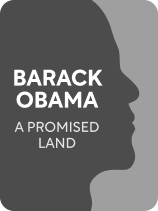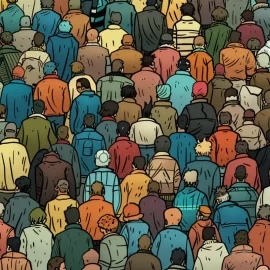

This article is an excerpt from the Shortform book guide to "A Promised Land" by Barack Obama. Shortform has the world's best summaries and analyses of books you should be reading.
Like this article? Sign up for a free trial here .
What happened to Barack Obama in the Iowa Caucus? How did Obama win?
Barack Obama knew that Iowa was crucial for a presidential campaign. Leading up to the Iowa Caucus, Barack Obama and his team put together a campaign that inspired others to get involved.
Read more about Barack Obama, the Iowa Caucus, and how it launched his presidential campaign.
Barack Obama in the Iowa Caucus
The Obama campaign team knew that winning the Iowa caucuses was crucial to their strategy. Securing a win in the first-in-the-nation contest would send a message to the political establishment and the media that his campaign deserved to be taken seriously.
This would be a boost to their volunteer recruitment and small-donor fundraising strategy, which would put them in a position to win subsequent contests on their path to the nomination.
Respect, Empower, Include
The campaign followed a unique (and, ultimately, groundbreaking) bottom-up approach to organizing.
Paul Tewes, a longtime Democratic political operative in the Midwest, was in charge of running the Obama campaign’s field efforts in Iowa. He was a remarkable organizer and motivator, helping the campaign set up offices in each of the state’s 99 counties.
Paid staffers in the county field offices were then tasked with building their own grassroots political organizations and making connections in the communities where they worked by speaking at local events, getting the word out about Barack’s vision for America, and recruiting new volunteers.
Tewes’s mantra (and Obama’s) was always respect, empower, include. The campaign was not a transactional operation, in which Iowans were being “sold” a candidate; it was a people-driven, bottom-up movement, a vehicle by which ordinary people could come together with their neighbors and effect change for their communities—and, ultimately, the country.
There had never been a field operation like what the Obama team built in Iowa in 2008. In his diverse, young campaign staff and volunteers, Barack saw his vision of a new, inclusive politics come to life.
Gaining Steam
As the Iowa campaign wore on into the summer and fall of 2007, Obama began to distinguish himself as a candidate. He began performing better in debates, making the emotional connection to voters that he’d failed to make earlier in the race.
Importantly, more than any of his Democratic rivals, he was willing to challenge stale Washington orthodoxy and butt heads with Democratic Party-aligned special interest groups (such as when he argued before powerful teachers unions that bad teachers should be held accountable).
This boldness added to his image as a new, fresh face in politics, untethered to the politics of the past—and it proved more and more popular with Democratic voters. His position in the polls began to rise relative to rivals Hillary Clinton and John Edwards, with surveys now showing him as a genuine contender in Iowa.
The campaign could feel it in the air—they had tapped into the mood of the moment.
The Rivalry With Hillary Clinton Grows
As rival campaigns began to recognize Obama as a legitimate threat, the tone of the primary race grew more heated and nasty.
As other candidates began to drop out, the contest for Iowa and the nomination became a two-person race between Obama and Clinton—and with every passing day, Obama’s campaign seemed to be gaining the upper hand.
He felt that the changing tone was a reflection of the growing desperation within the Clinton camp, as a nomination they thought they had well in hand appeared to be slipping away. Increasingly, her team resorted to smear tactics against Obama (such as initiating a risibly false whisper campaign that he’d dealt drugs while in high school). These smears, however, tended to backfire as voters saw the vindictiveness of her campaign to be divisive and distasteful.
Victory in Iowa
On January 3, 2008, the grassroots organizing efforts of the Obama campaign and its army of volunteers paid off with an eight-point victory in the Iowa caucuses.
He was the first Black candidate to win the caucuses, putting him in the strongest position that any minority candidate had ever been in to secure a major-party nomination. In the breakdown of the results, Obama saw a vindication of his unifying vision of politics—he carried every racial, age, and gender group in the state.
As he and his team celebrated their victory, his thoughts turned to the political as well as the personal. He thought of the significance of the win, what it meant for racial healing in America, and his long-held belief that the great project of American life was to perfect the vision that the Founders had started.
But he also thought of his late mother, Ann. At this moment of great triumph, he realized how terribly he missed her and how proud she would have been to see what her son had achieved.

———End of Preview———
Like what you just read? Read the rest of the world's best book summary and analysis of Barack Obama's "A Promised Land" at Shortform .
Here's what you'll find in our full A Promised Land summary :
- How Barack Obama went from relative obscurity to the first Black president
- What principles guided his political leadership style
- Why Obama retained an unshakable faith in the potential and promise of America






